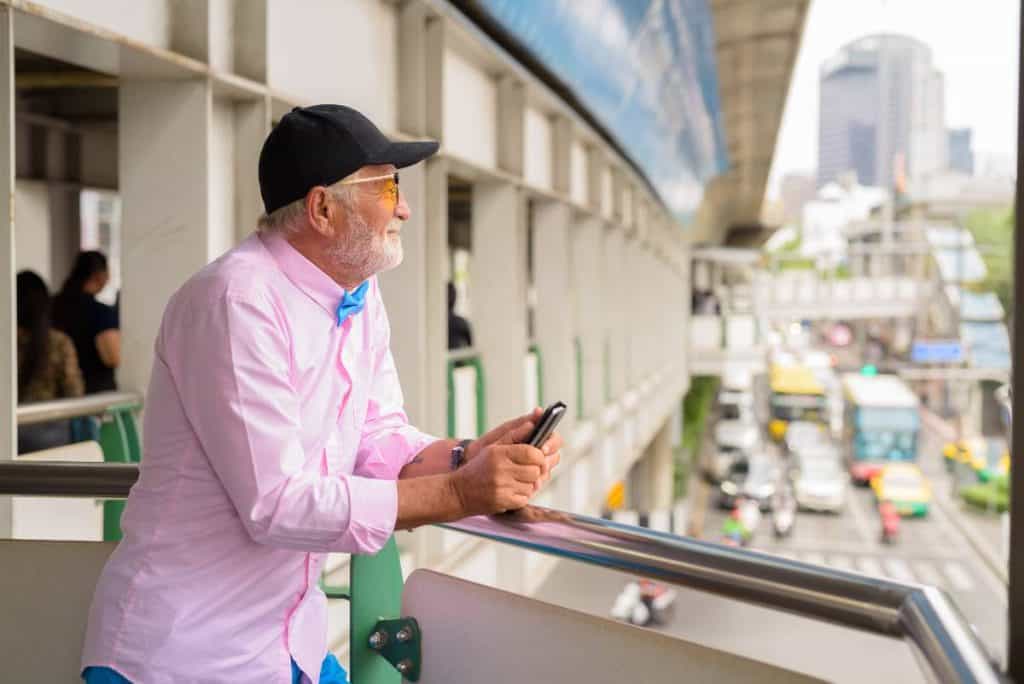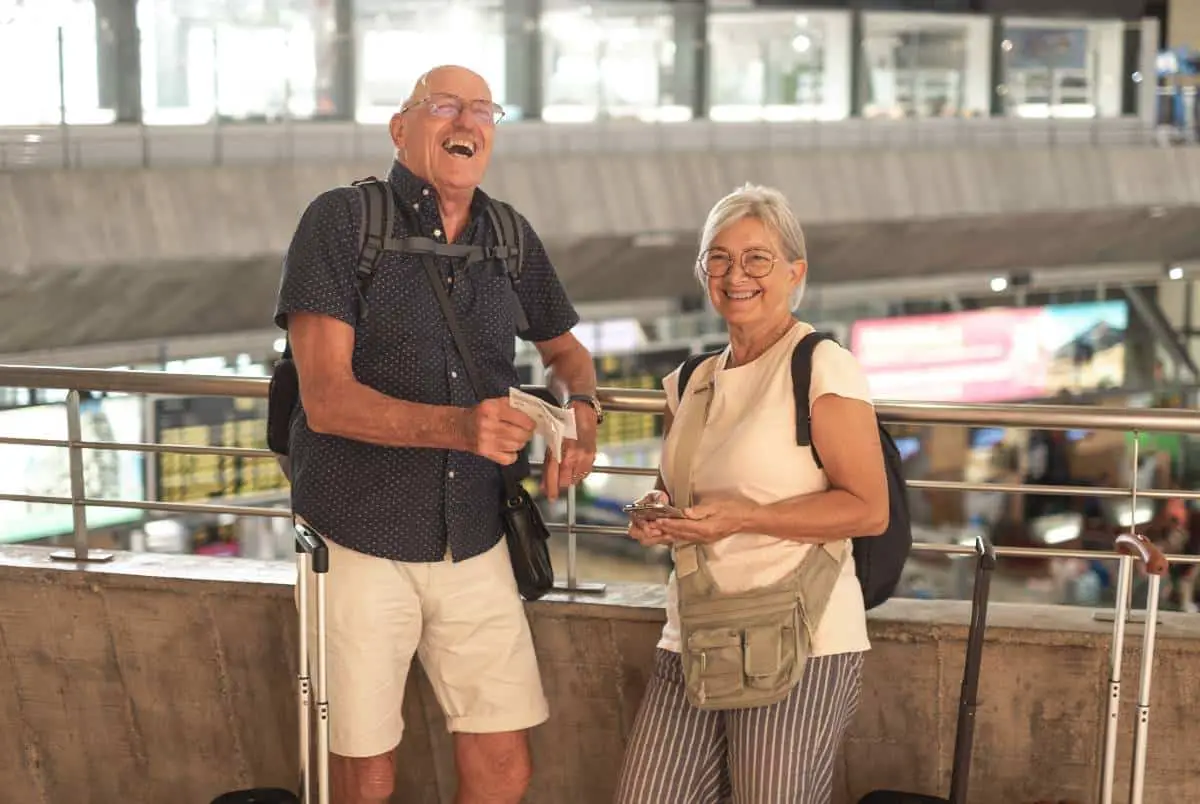The Best Guide to Accessibility in Thailand for Retirees
As someone who made the leap from the US to Thailand over three decades ago, I’ve witnessed firsthand how the kingdom has evolved in terms of accessibility and support for retirees. While Thailand’s famous beaches and warm climate continue to attract seniors worldwide, navigating life here with mobility challenges requires careful consideration and planning.
Key Takeaways
- Thailand offers diverse retirement visa options with specific financial requirements and healthcare mandates
- Major cities provide better accessibility infrastructure but require careful planning for mobility-challenged retirees
- Healthcare services and support systems vary significantly between urban and rural areas
Legal Framework and Requirements
The foundation of a successful retirement in Thailand starts with understanding the visa options. The most common path is the retirement visa, requiring applicants to be 50 or older and meet specific financial criteria. Currently, you’ll need either:
- 800,000 THB in a Thai bank account
- Monthly income of 65,000 THB
- A combination of savings and income totaling 800,000 THB
The Long-term Resident Visa (LTR) offers additional benefits but comes with higher financial requirements. For those seeking premium services, the Thailand Elite program provides enhanced support and multiple-entry privileges.
Documentation Requirements
One often-overlooked aspect is the 90-day reporting system. While it might seem cumbersome, many immigration offices now offer online services, making the process more manageable for those with mobility challenges.
Healthcare Accessibility
Thailand’s medical infrastructure has seen remarkable improvement over the years. In major cities like Bangkok and Chiang Mai, you’ll find:
- International hospitals with English-speaking staff
- Specialized geriatric care units
- Modern rehabilitation facilities
Insurance coverage is now mandatory for retirement visa holders, with a minimum requirement of 100,000 USD coverage. Through my experience assisting fellow expats, I’ve found that combining local and international insurance often provides the best protection.
Healthcare Accessibility in Thailand
Thailand’s healthcare system has evolved significantly since 2002 when it introduced its universal public healthcare system (ระบบการดูแลสุขภาพ), which now provides free or low-cost medical treatment to 98% of the population. As someone who’s helped numerous retirees navigate healthcare options in Thailand, I can tell you that this dual system of public and private care offers unique advantages for expatriate retirees.
The quality of healthcare in Thailand is impressive, currently ranking 31st on the 2023 Legatum Prosperity Index and 5th on the 2021 Global Health Security Index. While there are still differences between urban and rural healthcare access, major cities offer world-class medical facilities comparable to Western standards.
The country’s specialized medical services have become increasingly sophisticated, particularly in urban areas. Private facilities like Bumrungrad International, Bangkok Hospital, and Samitivej Hospital have earned international acclaim for their excellent care, offering English-speaking staff and state-of-the-art equipment at a fraction of Western prices.
Home healthcare services have revolutionized care for retirees. Professional providers now offer comprehensive in-home care, from basic health monitoring to advanced medical procedures. This is particularly valuable for those with mobility challenges, as English-speaking staff can coordinate directly with your primary healthcare team to ensure continuity of care.
Mobile physical therapy services have expanded significantly, bringing qualified therapists directly to your residence. These professionals specialize in rehabilitation, pain management, and mobility maintenance – essential services for maintaining independence in retirement. They typically work in close coordination with your primary healthcare providers to ensure comprehensive care.
For medical equipment needs, Thailand offers extensive rental options through companies that provide both short and long-term solutions. From mobility aids to specialized medical devices, these services include delivery and setup, making it easier for retirees to access necessary equipment without the burden of ownership.
The healthcare system is organized under the Ministry of Public Health (MOPH), with funding distributed through the National Health Security Office (NHSO) across 13 health regions. While most residents use the universal coverage scheme (UCS), there’s also a robust private health sector. Healthcare delivery occurs through a network of hospitals (โรงพยาบาล, rong phyābān), healthcare centers, and clinics throughout the country.
For retirees, the development of outpatient clinics like MedConsult Clinic and Samitivej Suvhanabhumi Medical Clinic has greatly improved access to routine healthcare. These facilities offer shorter wait times and more personalized attention than larger hospitals, making them ideal for regular check-ups and minor medical issues.
What makes Thailand’s healthcare system particularly attractive for retirees is its integration of services. Many providers offer comprehensive packages that coordinate between different types of care, ensuring consistent, high-quality medical support. Whether you need regular physical therapy, occasional home nursing care, or long-term medical equipment, these services can be tailored to your specific needs.
While these services are readily available in major cities like Bangkok, Phuket, and Chiang Mai, availability may be more limited in rural areas. It’s crucial to consider location when planning for your healthcare needs in retirement. Although costs are generally lower than in Western countries, having comprehensive health insurance that covers these specialized services is recommended to ensure access when needed. For retirees, combining insurance options that provide access to both public and private care systems offers the most comprehensive coverage and peace of mind.
Lastly, it’s worth noting that life expectancy in Thailand has increased dramatically in recent decades, now standing at 74.4 years for men and 81 years for women, reflecting the quality and accessibility of healthcare services available in the country.
Transportation and Mobility
Transportation and Mobility in Thailand
The transportation landscape in Thailand is undergoing significant changes, particularly in major urban areas. As someone who’s witnessed Bangkok’s evolution over three decades, I can tell you that getting around has become increasingly accessible, though it still requires careful planning for retirees with mobility needs.
In Bangkok, the BTS Skytrain and MRT systems have made remarkable strides in accessibility. The city is actively transitioning toward eco-friendly transportation options, with the recent addition of the Pink and Yellow Mass Rapid Transit Lines helping reduce carbon emissions by up to 50,000 tons annually. This development is part of Thailand’s broader commitment to reducing its environmental footprint, particularly important since the transport sector accounts for 26% of the country’s annual greenhouse gas emissions.
For daily transportation, you’ll find a mix of traditional and modern options. The emergence of e-mobility services has been a game-changer, with over 1,500 e-tuktuks now operating as micro-transit services and 1,200 e-buses serving Bangkok’s public transportation network. These eco-friendly options are particularly beneficial for retirees, offering quieter, smoother rides and better air quality. The city has also invested in expanding its EV charging infrastructure, with more than 1,000 stations now available.
For those seeking more personalized transport, services like Grab (similar to Uber) provide reliable taxi services with the option to request vehicles that accommodate mobility aids. Many retirees I’ve assisted have found success with private driver arrangements, particularly useful in areas where public transportation is limited. These drivers often become familiar with their clients’ specific needs and preferred routes, making daily travel more comfortable and predictable.
When venturing outside major cities, transportation options become more limited but are still manageable with proper planning. Many retirees opt for modified vehicle rentals or arrange long-term relationships with reliable drivers who understand their mobility requirements. The key is building a network of trusted transportation providers who can accommodate your specific needs while maintaining independence and comfort in your daily activities.
Living Arrangements and Community Support
Finding suitable housing requires careful consideration of accessibility features. Modern condominiums in urban areas often offer:
- Elevator access
- Wide doorways
- Ramp facilities
Daily Living Assistance
| Service Type | Availability | Average Monthly Cost |
|---|---|---|
| Home Care | Major Cities | 15,000-30,000 THB |
| Modified Housing | Limited | Varies |
| Shopping Services | Widespread | 2,000-5,000 THB |
| Personal Assistant | Major Cities | 8,000-15,000 THB |
| Medical Transport | Urban Areas | 3,000-8,000 THB |
| Meal Delivery | Widespread | 3,000-6,000 THB |
Notes:
- Costs may vary significantly by location and service provider
- Home Care includes basic medical assistance and daily living support
- Modified Housing costs depend on specific modifications needed
- Services are most readily available in Bangkok, Phuket, and Chiang Mai
- Many services offer flexible scheduling (daily, weekly, or monthly options)
- English-speaking staff typically commands premium rates
Technology and Digital Accessibility
Thailand’s digital infrastructure has made remarkable strides. Essential apps and services include:
- Mobile banking platforms
- Online grocery delivery services
- Telehealth consultations
Regional Considerations for Retirees in Thailand
After spending over three decades helping retirees find their ideal spot in Thailand, I’ve gained deep insights into how each region uniquely serves the accessibility needs of retirees. Let me share a comprehensive view of Thailand’s main retirement destinations and what you can really expect.
Bangkok stands out as Thailand’s most developed region for accessibility, offering a sophisticated urban lifestyle with modern conveniences. The capital boasts state-of-the-art medical facilities with English-speaking staff, extensive public transportation networks, and an ever-growing number of wheelchair-friendly venues. While the city’s modern infrastructure including skytrains and underground systems makes getting around easier, it’s worth noting that street-level navigation can still be challenging with uneven sidewalks and busy pedestrian areas. The trade-off for these amenities is dealing with the city’s intense climate and higher cost of living.
Moving north to Chiang Mai, you’ll find a more relaxed atmosphere that’s increasingly popular among retirees. The city offers a compelling mix of traditional charm and modern convenience, with a strong expat community that provides valuable support networks. The lower cost of living compared to Bangkok is a significant draw, and the cooler climate, especially during winter months, makes outdoor activities more enjoyable. While the medical infrastructure is well-developed with several international hospitals, accessibility features in the older parts of the city can be limited. However, newer developments are increasingly incorporating modern accessibility standards.
Phuket, Thailand’s largest island, presents a unique coastal living experience with high-quality private healthcare facilities and strong tourist infrastructure that benefits retirees. The island offers beautiful beaches and resort-style living options with international-standard housing. However, the hilly terrain can pose challenges for those with mobility issues, and the monsoon season requires additional planning for daily activities. The trade-off is access to world-class amenities and a vibrant international community.
Hua Hin has emerged as a popular choice for retirees seeking a more balanced lifestyle. This royal resort town offers a peaceful beach atmosphere with flat terrain that’s easier to navigate. The growing medical facilities, strong golf community, and manageable size make it an attractive option for those who find Bangkok overwhelming but still want access to modern amenities. The city successfully blends Thai culture with Western conveniences, creating a comfortable environment for retirees.
The Eastern Seaboard, including Pattaya and Jomtien, provides excellent medical infrastructure and flat beachfront areas that are particularly appealing to retirees with mobility considerations. These areas benefit from large expat communities and good transportation links to Bangkok, making it easier to access specialized medical care when needed. While some areas can feel overly tourist-oriented, there are plenty of quiet neighborhoods perfect for retirees seeking a more peaceful lifestyle.
When helping retirees choose their ideal location, I always emphasize the importance of considering the whole picture: proximity to quality healthcare, climate impact on daily activities, availability of support services, transportation options, and access to active expat communities. From my experience, successful retirement often comes down to matching your lifestyle needs with the right location. I’ve seen retirees thrive in different regions based on their personal preferences and requirements.
A practical tip I always share with my clients: consider renting in your preferred region for at least 3-6 months before making any permanent decisions. This gives you real-world experience of the local infrastructure, healthcare access, and community support available in each area. It’s also worth visiting during different seasons to understand how weather patterns might affect your daily activities and mobility needs. Remember, each region has its unique charm and challenges, and finding the right fit is crucial for a fulfilling retirement in Thailand.

Cost Breakdown and Budgeting for Retirees in Thailand (2024)
| Expense Category | Budget Living | Moderate Living | Luxury Living |
|---|---|---|---|
| Housing | |||
| Condo/Apartment | THB 15,000 | THB 40,000 | THB 80,000+ |
| Utilities | THB 3,000 | THB 4,000 | THB 5,000+ |
| Internet/Phone | THB 600 | THB 1,000 | THB 1,500 |
| Healthcare | |||
| Insurance (Monthly) | THB 8,000 | THB 10,000 | THB 12,000+ |
| Regular Checkups | THB 4,000/year | THB 6,000/year | THB 10,000+/year |
| Food & Dining | |||
| Groceries | THB 6,000 | THB 12,000 | THB 20,000+ |
| Dining Out | THB 5,000 | THB 10,000 | THB 20,000+ |
| Transportation | |||
| Local Transport | THB 2,000 | THB 4,000 | THB 8,000 |
| Entertainment | |||
| Activities/Leisure | THB 3,000 | THB 8,000 | THB 15,000+ |
| Support Services | |||
| Home Help/Care | Optional | THB 8,000 | THB 15,000+ |
| Monthly Total | ~THB 46,600 | ~THB 97,000 | THB 186,500+ |
| USD Equivalent* | ~$1,380 | ~$2,875 | $5,530+ |
*Exchange rate: 1 USD = 33.7 THB (as of early 2024)
Notes:
- Budget Living: Basic comfortable lifestyle, mainly local amenities
- Moderate Living: Western standards, mix of local and imported goods
- Luxury Living: High-end facilities, premium services, imported goods
- Costs may vary by location (Bangkok/Phuket typically 20-30% higher than other areas)
- Additional costs may include visa fees, emergency funds, and travel expenses
This budget breakdown can help retirees plan their finances according to their preferred lifestyle and location choices in Thailand.
Seasonal Considerations
Thailand’s climate can impact mobility significantly. The rainy season (June-October) requires extra preparation, while the cool season (November-February) offers the most comfortable conditions for outdoor activities.
Future Planning and Estate Management
Planning for the future while living in Thailand requires careful thought, but it doesn’t have to be complicated. Let’s break it down into manageable pieces that make sense for everyone.
First, you’ll want to set up a Power of Attorney (POA) – think of it as choosing someone you trust to handle things when you can’t. It’s like picking a backup player for your team. You’ll need two types: one for medical decisions and another for money matters. Make sure these documents are in both Thai and English, and get them certified at your local Thai embassy to make them official.
Healthcare planning is another crucial piece of the puzzle. Creating advance directives is like leaving instructions for a house sitter – you’re telling people exactly what you want if you can’t speak for yourself. Make a list of your preferred hospitals, write down who to call in an emergency, and specify any medical preferences you have. It’s also smart to name a trusted friend or family member who can make decisions for you if needed.
When it comes to managing your money, think of it as setting up a safety net. Consider opening joint accounts with family members so they can help handle your finances if necessary. Keep an emergency fund that’s easy to access, and set up your pension to transfer smoothly to your Thai bank account. Many retirees find it helpful to have accounts in multiple currencies – it’s like having different tools in your toolbox for different situations.
Document storage might sound boring, but it’s super important. Think of it as creating a roadmap for others to help you. Keep three copies of everything: one with you, one with a trusted friend in Thailand, and one with family back home. This includes the basics like your passport and visa papers, but also insurance policies, bank statements, property documents, and medical records. It’s better to have these ready and not need them than to need them and not have them.
Regular reviews are essential – mark your calendar for a yearly “paperwork checkup.” Update your contact lists, review your insurance coverage, and make sure all your legal documents are still valid. It’s like getting your car serviced – regular maintenance prevents bigger problems down the road.
Remember to keep things simple when planning for emergencies. Have a basic evacuation plan (just in case), keep some emergency cash on hand, and maintain an updated list of your medications and preferred hospitals. Make sure your family knows how to reach you and your local support network.
Most importantly, don’t feel overwhelmed. Take it one step at a time, and remember that planning ahead makes life easier for both you and your loved ones. Many expat communities in Thailand have regular meetups where you can learn from others who’ve already figured out these systems – it’s like having a friendly guide who’s walked the path before you.

FAQs
What are the minimum financial requirements for retiring in Thailand?
800,000 THB in savings or 65,000 THB monthly income.
How accessible is Thailand’s healthcare system?
Major cities offer excellent healthcare facilities with international standards; rural areas have limited services.
Which Thai cities are best for mobility-challenged retirees?
Bangkok, Chiang Mai, and Hua Hin offer the best infrastructure and support services.
What insurance coverage is mandatory?
Minimum 100,000 USD coverage for retirement visa holders.
How wheelchair-friendly is public transportation?
Varies significantly; major cities have some accessible options, but private transport is often more reliable.
Conclusion
After 35 years of guiding expats through their transition to Thailand, I understand that planning your retirement here comes with many questions. Whether you’re curious about healthcare options, and accessibility considerations, or just want to learn more about life in the Land of Smiles, I’m here to help. Feel free to reach out anytime!






